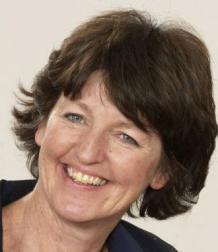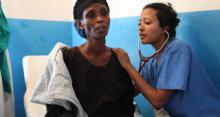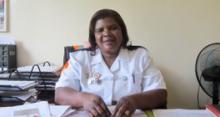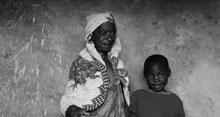Join the Movement
Big Ideas
Leading thinkers and activists share game-changing ideas about motherhood and improving maternal health and women's rights.

Did you know that a thousand women a day were dying needlessly in childbirth?
In the future I believe our daughters will ask us this question – and want to know what we did about it.
Until recently, the answer was often “no, I didn’t know”: even well-informed people in the “developed” world did not know that childbirth is one of the biggest killers of women and girls–and their newborns–globally.
For many, the fact that girls and women are still routinely dying from preventable complications of pregnancy such as heavy bleeding, high blood pressure, infections and obstructed labour, is shocking news—not because this is a new development, but because this is not the kind of news the gets into the press. In fact, it’s been going on for decades—centuries even. And those who die are almost always poor and voiceless, buried without a trace.
Indeed, the risk of death in pregnancy and childbirth is as high as 1 in 9 in some countries, making it more likely that girls will die giving birth than go to school. This begins a vicious cycle of low education, poverty, child marriage – and back to early death in childbirth.
So, what can we do about it? Few of us can go to rural Africa, even if we have midwifery skills. But we all have a voice. When people hear the facts, they want change. So the first action you can take is to spread the word.
From there you can go on to support the work of those who are already working to solve these problems. The global network of (mostly) volunteers that I work for, White Ribbon Alliance, has a range of actions you can take on our website, from contacting your elected representative in time for International Women’s Day on March 8th, to our “Action of the Month,” which features a new opportunity to make your voice heard every month.
For instance, we are urgently calling for more healthworkers for mothers. A million more are needed now in the communities where women are dying because they can’t reach health care. And in case you’re wondering if this kind of advocacy makes a difference – yes, it does.
I was recently told a story by White Ribbon Alliance members in Uganda. In Kabale, a popular tourist destination to visit gorillas, women had to walk for five hours to get to the health center to give birth; a ride in one of the many tourist vehicles on hand cost a month’s wages. Once they arrived at the center, of the 96 government midwives that should have been on hand, only 14 were in post. The local White Ribbon Alliance members started pushing health officials for explanations, and soon the District Health Chief looked into it and decided to release more funds for salaries. The number of midwives in Kabale nearly tripled within six months. Many mothers and newborns will survive as a direct result.
In this instance and in many others, change happens when grassroots communities demand that the decision makers on the ground tweak the system to make women a priority.
We can support these grassroots activists by using our voices to make sure a similar change happens in the wealthy countries that can provide training for health workers. You can speak out to let the media know you care about this; you can contact your elected representative to let them know you want them to pay attention; you can sign the IMOW Pledge.
The case that we can all make together is strong. Maternal mortality is the world’s greatest health inequity, and so is a pressing matter for global justice. Women don’t die in childbirth because they have a disease we cannot treat. This is not a like finding the cure for cancer. We know how to prevent these deaths.
And we are winning this argument. After decades when women continued to die in uncounted millions without much progress, things are changing. In recent years, the White Ribbon Alliance’s grassroots global movement to prevent needless deaths in childbirth has quadrupled in size.
The progress is global, and we are gaining traction with world leaders; UN Secretary General Ban Ki Moon’s Global Strategy for Women and Children’s Health announced an unprecedented $43 billion in funding for the UN’s Global Strategy for Women and Children’s health when he launched it at the UN in 2010. In 2011 this grew to some $70 billion.
But to continue this change, we need to make sure promises are kept – and more commitments made. That requires a lot of people at every level (grassroots, national, global) to pay attention, to make a fuss, to say this matters.
So what can we do?
Plenty. Speak; act; be part of the historic change that is coming.
My hope and my belief is that the next generation will look back and say, “Can you believe that women used to die in childbirth? Thank heavens that’s a thing of the past.”
Related Content
|
Christy Turlington Burns explains that in order to make true progress on maternal health, we need to collectively prioritize mothers and advocate on their behalf. |
Dr. Rahel Nardos is improving maternal health in Ethiopia one woman at a time, by training Ethiopian doctors and midwives in life-saving obstetric procedures and preventative maternal health. |
Rhoda Amafumba, a midwife and nurse for more than 25 years in Lusaka, Zambia, trains midwifes in use of the LifeWrap, a groundbreaking first-aid device that saves mothers’ lives. |
Sasja van Vechgel, alongside the Foxes NGO, photographed mothers, children, and families affected by the HIV/AIDS endemic in Tanzania. |





